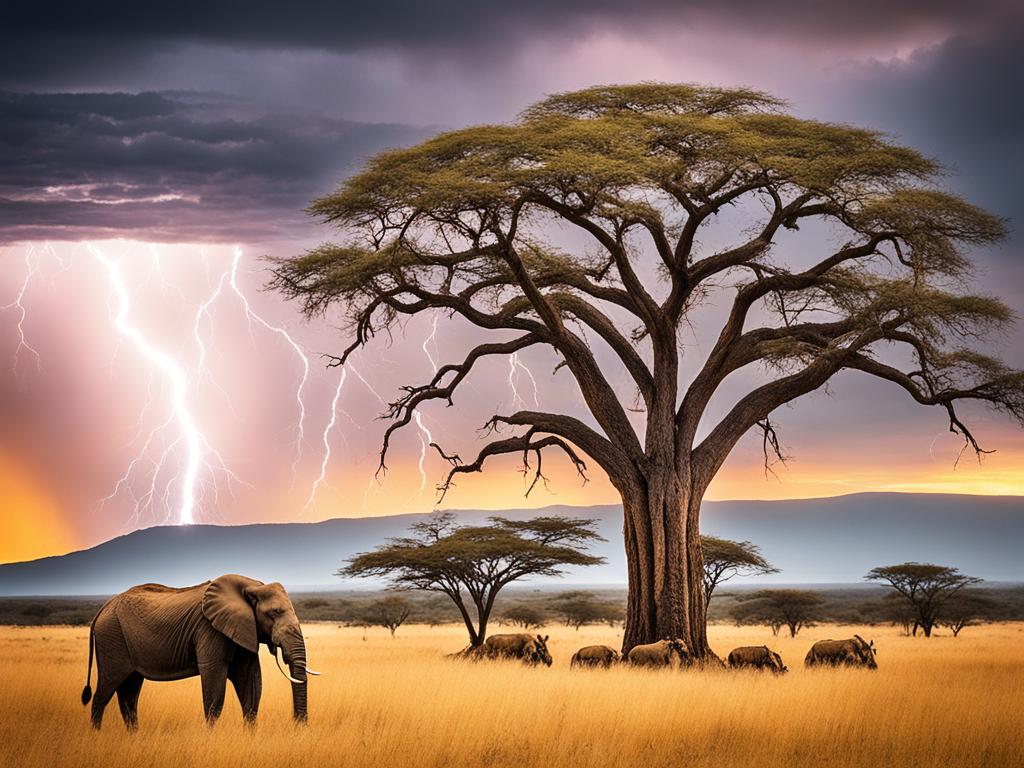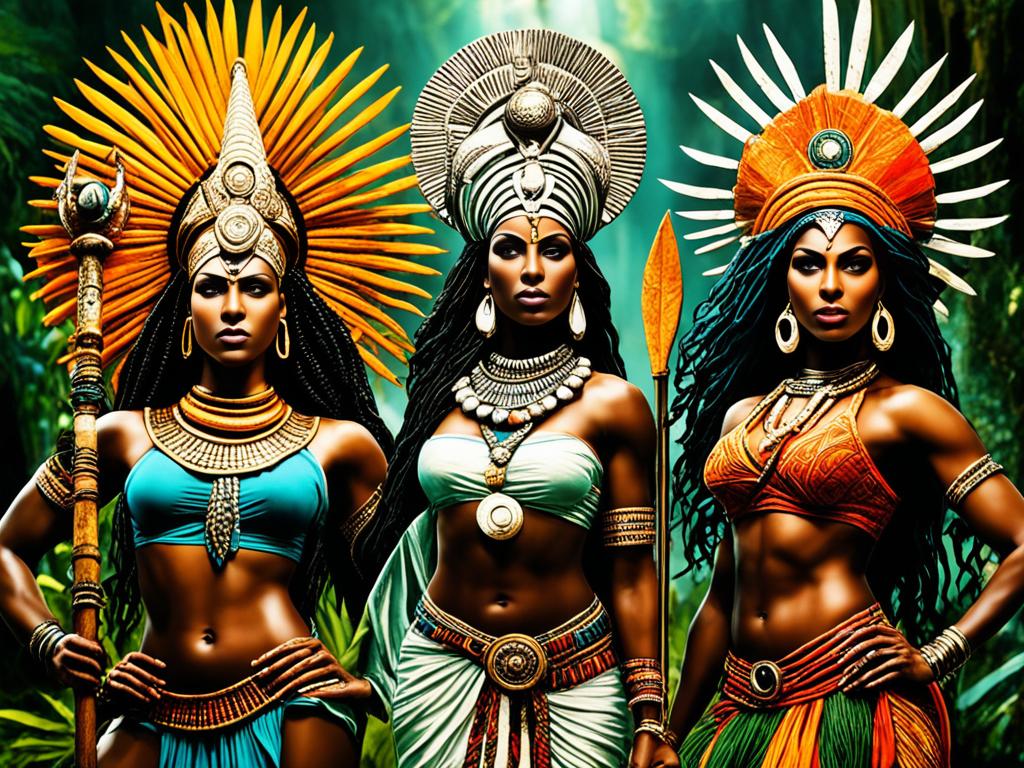Adverts
Welcome to the fascinating world of African mythology, a treasure trove of mysteries and legends surrounding African gods and goddesses. In this section, we will embark on a journey to explore the Divine Pantheon of this rich culture. We will learn about the African deities, their stories and the fundamental role they play in religion and African culture.
A African mythology is an interweaving of beliefs, traditions and narratives that encompass the entire diversity of the continent. By exploring this mythology, we delve into the pillars of African culture, understanding its unique identity and the deep roots of African religion.
Adverts
On this exciting journey, we will discover how African deities are revered and worshipped. We will learn about their stories, characteristics and importance in the daily lives of Africans. From the powerful and protective Oxum to the wise and healing Mami Wata, there are countless captivating deities to be known.
In addition, we will delve into the history of these African gods and goddesses, understanding their origin and the evolution of their narratives over the centuries. Through this exploration, we will be able to appreciate how African culture intertwines with the divine, creating a colorful tapestry of belief and devotion.
Adverts
So join us on a journey through the African mythology, delving into the mysteries and richness of the Divine Pantheon. Prepare to discover sacred secrets, unravel ancestral legends and understand the importance of these deities in African culture.
The History of African Gods.
In this section, we will delve deeper into the history of the gods Africans and discover their fascinating origins. Over the centuries, these deities have played an essential role in African culture and shaped the continent's beliefs and traditions.
African beliefs are diverse and rich, varying from region to region. Each ethnic group has its own gods and myths, passed down from generation to generation. history of the gods Africans is deeply rooted in oral traditions, passed down through tales and songs from elders.
A fascinating aspect of African mythology is the connection between gods and nature. Many deities are associated with natural elements, such as rivers, mountains, and animals. Through these symbolic representations, Africans sought to understand and connect with the mysteries of life and the universe.
In some parts of Africa, African gods are considered deified ancestors. They are revered as protectors and spiritual guides, capable of interceding in human affairs. They are believed to possess supreme wisdom and to be able to influence the course of people's lives.
African beliefs are deeply rooted in the history and daily lives of the people. African gods are a fundamental part of the continent's cultural and spiritual identity, passing on values, traditions and teachings from generation to generation.
Through the history of the gods Africans, we are invited to delve into a rich tapestry of myths and legends. Each deity has its own unique story and special attributes that reflect the complexity and diversity of African beliefs.
To better visualize this mythological richness, see the image below:

African Goddesses and their Importance.
In this section, we will highlight the importance of African goddesses in the mythology and culture of the continent. We will learn about the different female deities and understand the vital role they played in the lives of Africans.
African goddesses played essential roles in the traditions and beliefs of African communities. They were revered as creators, protectors, and providers of blessings. Each goddess had specific attributes and embodied values important to the people.
One of the most well-known female deities is Yemoja, the mother of waters. She was worshipped in many parts of Africa as the protector of rivers, oceans, and all forms of water. Yemoja was believed to bring fertility, healing, and protection to communities living near water.
Another important goddess is Oshun, who represents love, beauty and sensuality. She is considered the protector of children and pregnant women. Oshun is also associated with rivers and fresh water, and is worshipped for her ability to bring prosperity and happiness.

In addition to Yemoja and Oshun, there are many other African goddesses with unique stories and characteristics. For example, Mawu is the mother goddess of creation and balance. Iansã is the deity of winds, storms and changes. Nana is the goddess of swamps and marshes, responsible for transformation and renewal.
“African goddesses embody feminine strength and are powerful representations of divinity. They inspire respect, worship and devotion, playing a fundamental role in African culture.” – Priestess Yara
The importance of African goddesses goes beyond their religious role. They are symbols of female empowerment, resilience and leadership. Their stories and teachings continue to be passed down from generation to generation, enriching African culture and inspiring women around the world.
Conclusion.
In concluding this article, we revisit the mysteries of the African gods and their relationship to the Divine Pantheon. As we explore the rich African mythology, it becomes clear how important this narrative is as an integral part of the culture and identity of the African continent.
Over the centuries, African gods have played a vital role in the lives of Africans, inspiring beliefs, traditions and values. They personify the forces of nature, fertility, war, love and more, demonstrating the cultural and spiritual diversity of the continent.
The mystical experience of African mythology transports us to a world of fascinating legends and stories that not only entertain but also teach us about African ancestry and its connection to the land. Through these gods and goddesses, we are taken on a journey that connects us with the wisdom and spirituality of a people.
In short, African mythology is a cultural treasure that should be valued and preserved. Through this lens, we can better understand the richness of African culture and its contribution to the diversity of humanity.
